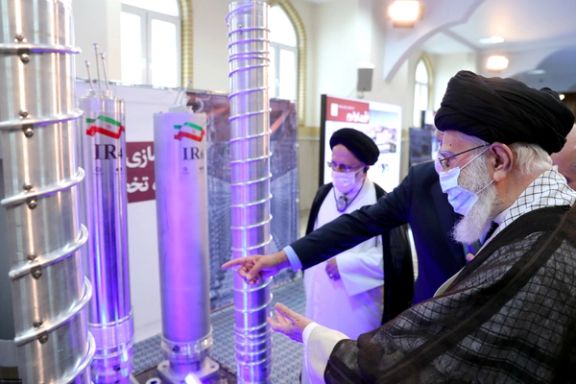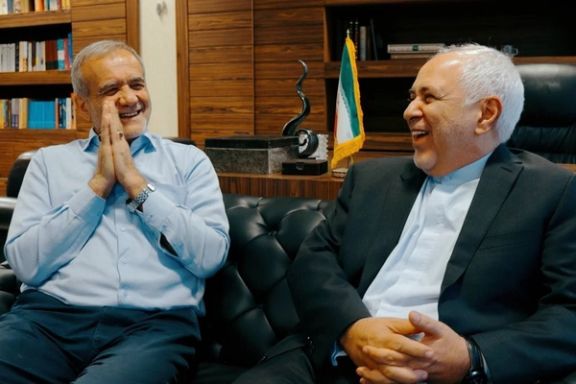Khamenei pins hope on new government to deflect foreign pressures

With a new president nearly in office in Tehran, there is much speculation about the direction of the new Iranian government's foreign policy.

With a new president nearly in office in Tehran, there is much speculation about the direction of the new Iranian government's foreign policy.
Supreme Leader Ali Khamenei, who is widely believed to have the final say on foreign policy and other matters in Iran, has assured domestic and foreign audiences that no change is likely to take place in Iran's foreign policy with the change of president. However, the specter of Trump’s re-election is not a pleasant prospect for Khamenei and the veneer of a more “moderate” government might be one of the few effective tools he can employ to deflect more sanctions and pressures.
Nonetheless, to respond to the demands of the nation whose patience is running thin in the face of serious and long-standing economic problems, the new president has vowed to do whatever in his power to improve the country's relations with the outside world in a bid to have the paralyzing US and other international sanctions on Iran lifted.
The most severe sanctions on Iran were imposed following the 2018 US withdrawal from the JCPOA nuclear deal. These sanctions have significantly impacted Iran's oil sales and international banking. As a result, Tehran's ability to sell oil on international markets has been restricted, and it faces challenges in repatriating the proceeds, having to sell the oil at discounted prices almost exclusively to China.

It remains unclear who will be the country's new foreign minister. Traditionally, however, Iran’s so-called moderate governments have relied on disagreements between the United States and Europe, leveraging divisions to weaken a united front against the Islamic Republic’s nuclear program and its regional interventions.
Some of the latest reports from Tehran indicate that the new government is keen to follow an approach of less tensions with West. For instance, a report in proreform Fararu website says that Iran's new government, which has not been officially formed yet, is likely to review the country's domestic and foreign policies.
However, this does not seem to be so easy, as the new President Masoud Pezeshkian's fundamentalist rival Saeed Jalili has threatened that “revolutionary forces” will not allow the government to make any compromise on ideological values.
Fararu reminded that hardliners who oppose better ties with the West have lost the election, but they have not lost political power. This serious challenge, according to the website will affect every decision to be made by the new government.
The new government will inevitably face several challenges, including securing approval for its cabinet ministers from the hardliner-dominated parliament. Some observers note that Pezeshkian has friendly ties with Majles Speaker Mohammad Bagher Ghalibaf. However, the key question is whether Ghalibaf can influence the hardliners in parliament. The answer to this will determine how easy or difficult it will be for Pezeshkian's cabinet ministers to win a vote of confidence from the Majles.
Putting foreign policy on the right track is the next challenge. The unknown factor is Supreme Leader Ali Khamenei’s plan. Does he want a meaningful change or just a façade of a “reformist” government? Then comes Pezeshkian’s task of dealing with hardliners if he ends up trying to make any concessions to the United States.
The next challenge will be striking a balance between relations with and dependency on the East and the West. Radicals in Iran refuse to accept that even China and Russia must engage with the United States and Europe as both trade partners and political rivals. People like Jalili have often been more anti-West than even Russia and China.
Leaving behind these challenges is not easy considering the weight and might of hardliners' media fleet led by the state radio and television and the backing of the Revolutionary Guard.
However, Pezeshkian may have a counterbalance that could silence the hardliners: potential support from Khamenei. Iranians will see within a few months if this backing materializes. Even if it does, Pezeshkian might abandon his promise to end the crackdown on women who defy the compulsory hijab. This is an area where Khamenei is likely to allow the radicals free rein, assuring them that they are not entirely marginalized.